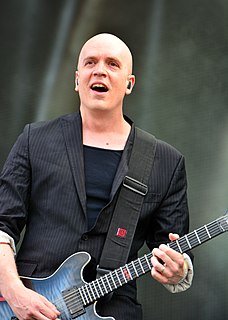A Quote by Kimbal Musk
The Kitchen was a really great concept; it just wasn't at the price point that made it accessible to people. People could visit occasionally, and some people were coming regularly. It just wasn't a novel concept for every customer.
Related Quotes
It's true that there is a rescue thing in people, and not just rescuing the family, which is kind of obvious from a biological point of view. But why is it that some people will jump into a freezing river and swim out to a downed plane for total strangers? What is that about? And it seems to be that it's part of your concept of who you are. That's why some people run into the burning buildings, because if they don't, their concept of who they are will be violated. They wouldn't be who they thought they were.
One thing that's really important for me to be creatively motivated is to find an angle. Some people refer to that as a concept, which it is, in a sense, but not overtly. It's just something I need to focus and hone in on, and the trajectory of what might be seen as a 'concept' gives me creative momentum.
Jobs, as such, are a relatively new concept. People may have always worked, but until the advent of the corporation in the early Renaissance, most people just worked for themselves. They made shoes, plucked chickens, or created value in some way for other people, who then traded or paid for those goods and services.
9/11 just seemed to come out of the blue. And there were people asking questions, but then there were no answers. At some point, it just turned into, "We've got to do what we've got to do." And I think those are the moments when you grow, when you get the opportunity to try to figure out, exactly as you said, what price are you paying, and if it's worth that price.
Bypasses are devices that allow some people to dash from point A to point B very fast while other people dash from point B to point A very fast. People living at point C, being a point directly in between, are often given to wonder what's so great about point A that so many people from point B are so keen to get there and what's so great about point B that so many people from point A are so keen to get there. They often wish that people would just once and for all work out where the hell they wanted to be.
When I was trying to popularize the concept of the Internet - ten or 15 years ago - I came up with this concept of "the 5 Cs." Services needed to have content, context, community, commerce, and connectivity. After that, when I was trying to think of what the key management principles were to build into the culture, I started talking about the Ps. The P's were things like passion, perseverance, perspective and people. I think the people aspect is really the most important one.
You have more and more people coming into the tent with the creative guys [on Hollywood films]. You have marketing and concept testers, advertising people. What you find gets the high numbers is easily appealing subjects: a baby, a big broad joke, a high concept. Everything is tested. The effect is to lessen the gamble, but in fact you destroy a writer's confidence and creativity once so many people are invited into the tent.
I understood more what Nancy Reagan and Ronald Reagan, what they were coming from. Kind of the horrors of their childhoods that they were coming from. When you experience such pain early on, some people really interface with that pain and try and unpack it, and some people just take it and squelch it down and try and be as successful as they can. And, you know, encourage everybody, "Don't dwell on the negative! Come on, buck up!"



































